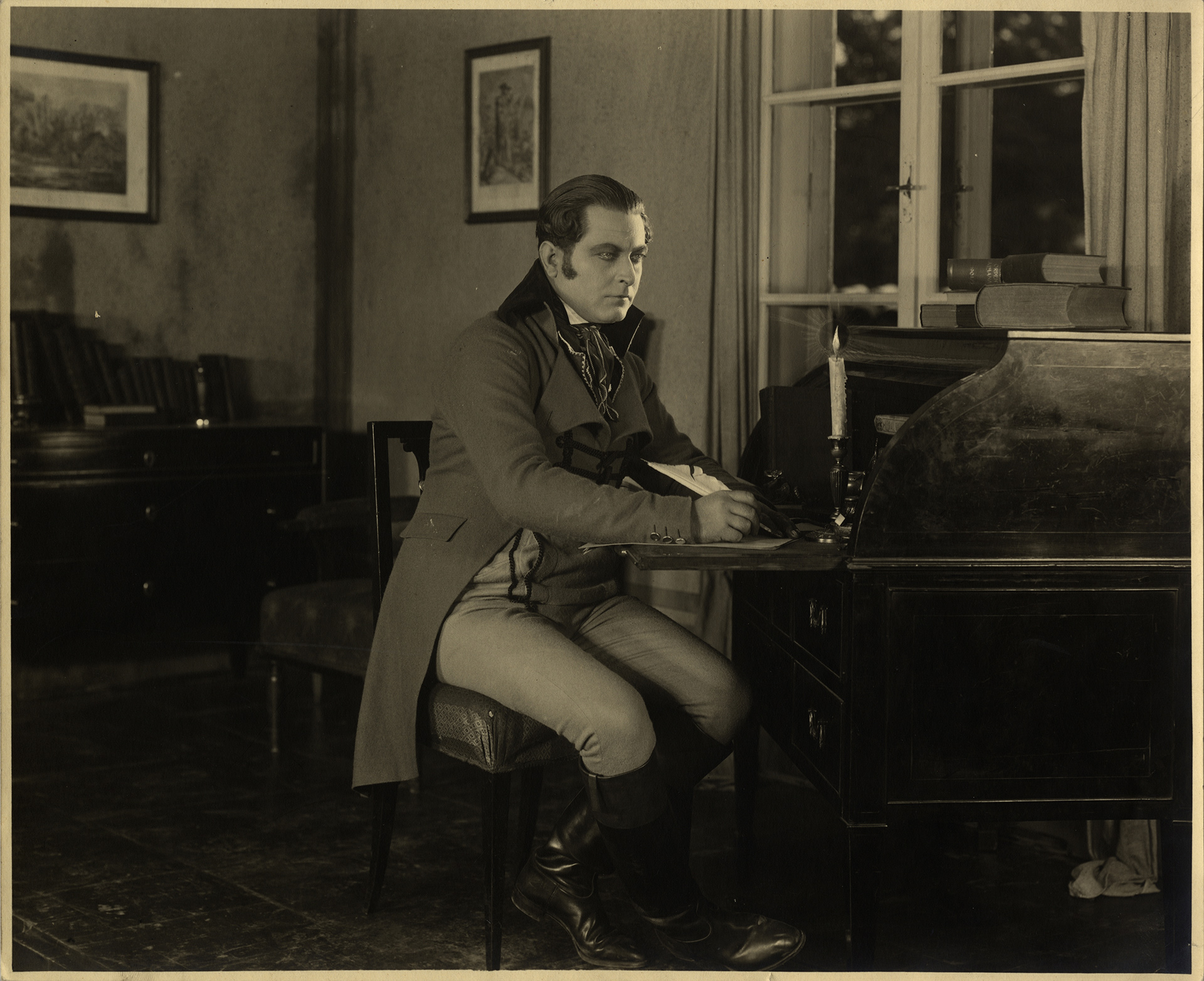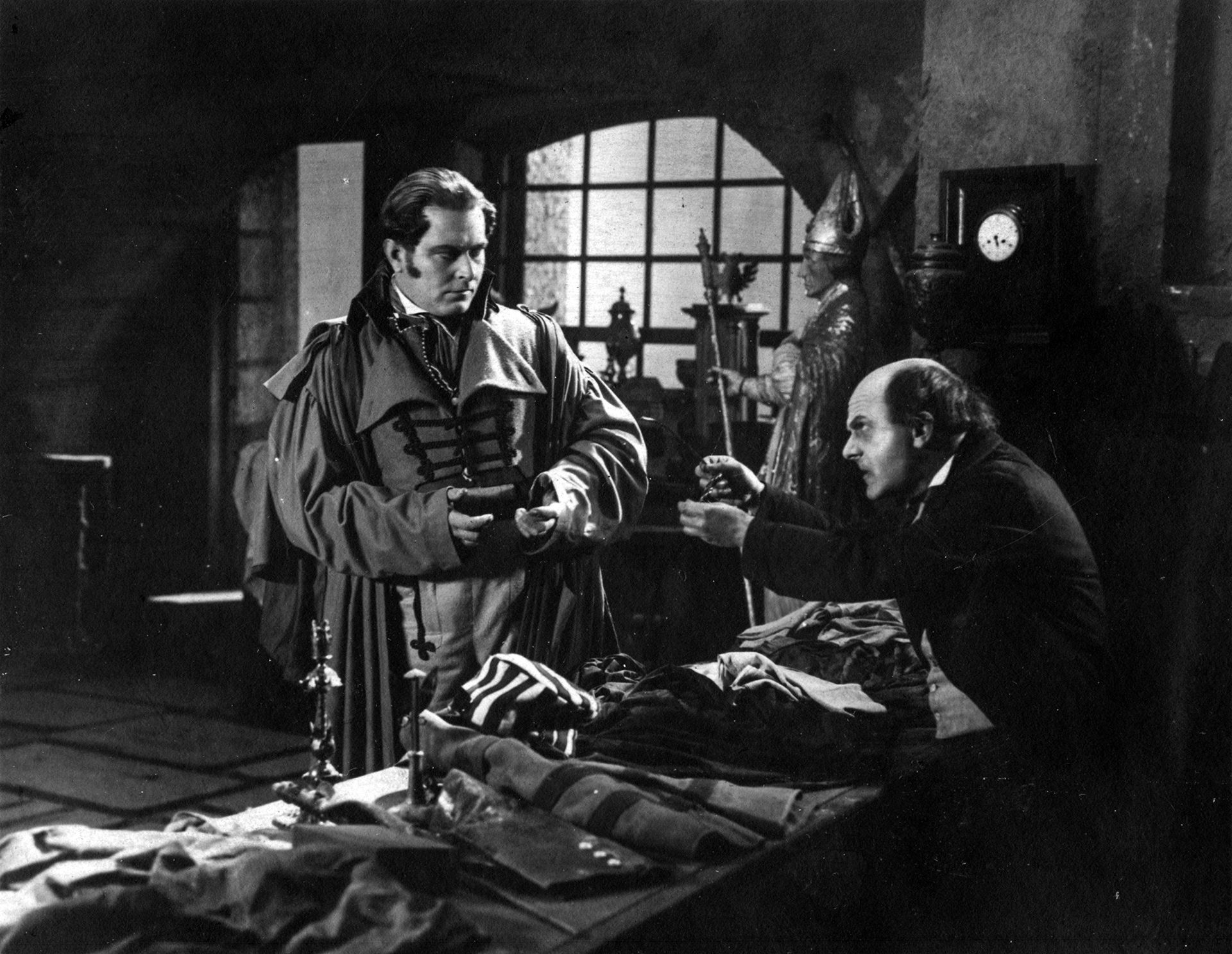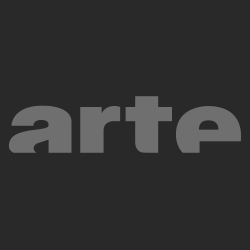The Tales of Hoffmann
The Tales of Hoffmann
Austria 1922/1923, 76 min. | HD-s/w (virague)-restored version
The Tales of Hoffmann is an Austrian silent film from 1923 by the Austro-Hungarian actor and film director Max Neufeld, loosely based on motifs from the opera of the same name, which in turn is based on several novellas by E. T. A. Hoffmann, who is portrayed in the film by Max Neufeld himself.
The young Hoffmann lives with his uncle in Jena, who is warmly hated by him, as are several figures from his circle of acquaintances: Conte Dapertutto, the alchemists Coppelius and Spalanzani and the physician Dr. Mirakel.
Around these figures, years later, three unhappy love stories unfold: (1) Through Coppelius′ miracle glasses, which show everything dead alive, he falls in love with the dancing doll Olympia. (2) Conte Dapertutto hounds Hoffmann and Schlemihl, both of whom are trying to win Giulietta, into a duel in which Schlemihl dies; Dapertutto makes off with his gold and the beloved. (3) Dr. Mirakel instigates Hoffmann to make Antonia, the daughter of Councillor Crespel, dance, which ends fatally for her. Hoffmann moves on to Berlin.
Commissioned by Konzerthaus Berlin, the Vienna-based German composer Johannes Kalitzke is writing a new film score for orchestra. In cooperation with ZDF in collaboration with Arte, the recordings will take place with the Konzerthausorchester Berlin conducted by the composer in September 2021.
The Tales of Hoffmann
Beethoven Variations for orchestra to the film of the same name by Max Neufeld
Johannes Kalitzke (2021)
Instrumentation:
3(3rd alto fl.).3(3rd Engl.Hrn).3(1st also in Eb, 3rd BKla).3(3rd KFag) - 4.3.3.1 - timpani, 2 percussion, harp, 1 piano, 1 master keyboard/sampler - strings.
Johannes Kalitzke (*1959)
studied piano, conducting and composition at the Musikhochschule in Cologne, followed by studies in electronic music. He is considered an excellent interpreter of classical and modern music and has regular guest conducting engagements with the leading ensembles, symphony orchestras and opera houses in the field of contemporary music. However, the main focus of his musical work is composition, especially for opera - most recently commissioned by the Heidelberg Opera PYM - and chamber ensemble. His orchestral film music for DIE WEBER (D 1927) is currently the most performed silent film music internationally, including by ensemble modern; it was co-produced by ZDF/ARTE in July 2013. This was followed by silent film music: SCHATTEN (D 1923), premiered at the Tagen für neue Kammermusik 2016, Witten, as a co-production ZDF/ARTE and WDR, ORLACS HÄNDE (A 1924), premiered in Salzburg (aspekte) 2018 and broadcast on ARTE in 2019. His most recent work with film, the church film opera JEANNE D' ARC (F 1928), premiered at the Carinthian Summer 2020 on 20.08.20.
Neufeld Max, * 13 February 1887 Guntersdorf, Lower Austria, † 2 December 1967 Vienna,
was an actor, director, brother of the actor Eugen Neufeld. Played in the beginning in his father's theatre company, then at the Theater in der Josefstadt and 1912-1914 at Jarno stages. He was considered one of the best actors of his time. In 1913 he (together with his brother) was discovered for film by the Vienna Kunstfilm ("Unter falscher Flagge", then also leading actors in Ganghofer and Anzengruber adaptations). After war service (1915-1918 as an officer) he returned to film (first as a performer at Wiener Kunstfilm GmbH, then artistic director of Vita-Film [later Wien-Film]), also turning to directing (he often employed his brother as an actor); Neufeld was also a board member of the Filmbund. His most important films include "The Arsonists of Europe", "Tales of Hoffmann", "Hotel Potemkin" and "A Star Falls from the Sky". At the end of the 1920s he successfully campaigned in the Viennese film industry for the replacement of mass production with quality production.
Source: Vienna History WIKI
Credits
- Direction:
Max Neufeld - Screenplay:
Josef B. Malina - Camera:
Gaston Grincault, Josef Besci - Actors:
Max Neufeld (E.T.A. Hoffmann), Kitty Hulsch (Olympia), Josef Zetenius (Narr), Karl Ehmann (Puppenhändler), Viktor Franz (Trödler), Paul Askonas (Dr. Mirakel), Karl Forest (Rat Crespel), Lola Kneidinger (Antonia), Eugen Neufeld (Dapertuto) a.o. - Film restoration (2021):
Filmarchiv Austria - Score music (2021):
Johannes Kalitzke (Commissioned by Konzerthaus Berlin) - Redaktion:
Nina Goslar, ZDF - Production:
Thomas Schmölz, 2eleven music film






